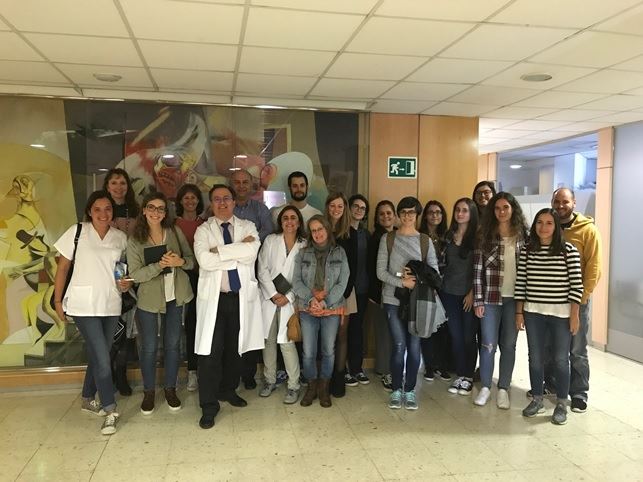Fernando Corrales, Centro Nacional de Biotecnología, CSIC, Spain
The first International Course on Clinical Proteomics, sponsored by HUPO, took place during the week of the 23-27th of October in the University Hospital of A Coruña (Spain). This course had the aim of showing the analytical procedures that are routinely developed in a Hospital, and the applications that proteomics technologies can have in this environment. The course was organized by the Spanish network of proteomic facilities, ProteoRed and HUPO.
During the mornings, the attendees were integrated into the work of five different areas of the hospital: clinical analysis/laboratory, pharmacy, microbiology, histomorphology/anatomic pathology, and the biobank. These rotations allowed a direct contact with the most common clinical analytical routines of the A Coruña Hospital, a reference centre in Spain with more than 1.400 beds and around 4.800 workers.
The afternoons were dedicated to lectures on the application of clinical proteomics approaches in the different areas. On Monday, Fernando Corrales (Director of ProteoRed) gave an overview of clinical proteomics, its technologies and strategies. Tuesday was dedicated to applications of proteomics in pharmacy, and Ángel García (president of de Spanish Proteomics Society, SEProt) spoked about the discovery of novel targets and drugs in platelet-related diseases. On Wednesday Connie Jiménez (BD-HPP Cancer Initiative), head of the Oncoproteomics Laboratory of the VMUC-Cancer Center (Amsterdam) described different proteomic strategies in cancer research, including phosphoproteomic approaches and the analysis of liquid biopsies such as CSF and urine. In the Microbiology session on Thursday, Marina Oviaño (Microbiology Department of the Hospital) showed the applications of MALDI-mass spectrometry for the identification of bacteria and the evaluation of antimicrobial resistance that have been implemented in her Department. Finally, Beatriz Rocha (Maastricht Multimodal Molecular Imaging Institute) gave on Friday a lecture on mass spectrometry imaging and the promising translation of this technology into clinical applications.
The final impression of both students and organizers has been very positive. In the evaluation survey, the students highlighted as the most interesting issue having the opportunity to work in the services of microbiology and clinical analysis of this big hospital. We hope this course will be consolidated as an international reference for clinical proteomics researchers.

PHOTO: Participants at the 2017 I Clinical Proteomics Course.


.png)